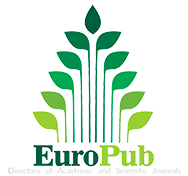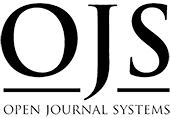Infusing Soft Skills in Higher Education: Key to the Development of Advanced Human Capital
Palavras-chave:
Active learning, Learning outcomes, Student engagement, Higher educationResumo
O campo do ensino superior está sob pressão sem precedentes, pois precisa preparar os alunos para uma participação ativa na força de trabalho. Hoje, os empregadores buscam profissionais que demonstrem soft skills - qualidades pessoais que os tornem colaboradores mais adaptáveis, proativos, resilientes e responsáveis. O objetivo deste artigo é abrir o debate sobre a infusão de soft skills no currículo das Instituições de Ensino Superior (IES) e o seu impacto na empregabilidade futura dos diplomados. Isso se relaciona com as demandas do mercado de trabalho e com a ênfase atual no desenvolvimento de competências socioemocionais. A metodologia utilizada consistiu na análise documental, confrontada com o ponto de vista do autor. A contribuição refere-se à necessidade de incutir soft skills no currículo e implementar estratégias metodológicas e avaliativas que valorizem as propostas educativas. O artigo conclui com uma síntese, tentando explicar as relações entre os conceitos-chave e suas implicações para o ensino superior.
Referências
Cao, L. & Nietfeld, J. L. (2007). College Students’ Metacognitive Awareness of Difficulties in Learning the Class Con- tent Does Not Automatically Lead to Adjustment of Study Strategies. Australian Journal of Educational & Developmental Psychology, 7, 31-46.
Chinotti, O. (2015). Hiring and Inspiring Graduates in the New Work Environment. Speech at “Soft Skills and their role in employability – New perspectives in teaching, assessment and certification”, workshop in Bertinoro, FC, Italy.
CNA-Chile – Comisión Nacional de Acreditación de Chile (2015). Criterios de Evaluación para la Acreditación de Carreras Profesionales, Carreras Profesionales con Licenciatura y Programas de Licenciatura. https://www.cnachile.cl/Criterios%20y%20Procedimientos/DJ%20009-4%20Criterios.pdf
Connelly, B. & Ones, D. (2010). Another perspective on personality: Meta- analytic integration of observers’ accuracy and predictive validity. Psychological Bulletin, 136(6), 1092-1122.
CRS (2022). Skills Gaps: A Review of Underlying Concepts and Evidence. Congress Report Service. https://crsreports.congress.gov/product/pdf/R/R47059
de Boer & Van Rijnsoever, F. (2022). In search of valid non-cognitive student selection criteria. Assessment & Evaluation in Higher Education, 47(5), 783-800. https://dspace.library.uu.nl/bitstream/handle/1874/427438/In_search_of_valid_non_cognitive_student_selection_criteria.pdf?sequence=1
Heckman, J. (2012). Hard Evidence on Soft Skills. Focus, 29(2), 3-8. http://www.irp.wisc.edu/publications/focus/pdfs/foc292b.pdf
Kechagias, K. (2011). Teaching and assessing soft skills. Neapolis-Thessaloniki: 1st Second Chance School of Thessaloniki. https://www.voced.edu.au/content/ngv%3A68131
Kolb, D. (1984). Experiential learning. New York. Prentice-Hall, Englewood Cliffs. http://academic.regis.edu/ed205/kolb.pdf
Lamri, J. & Lubart, T. (2023). Reconciling Hard Skills and Soft Skills in a Common Framework: The Generic Skills Component Approach. Journal of Intelligence, 11(6), 1-19. https://doi.org/10.3390/jintelligence11060107
Laskey, M. and Hetzel, C. (2010). Self- regulated Learning, Metacognition and Soft Skills: The 21st Century Learner. http://files.eric.ed.gov/fulltext/ED511589.pdf
Manfra, M. M. (2019). Action Research and Systematic, Intentional Change in Teaching Practice. Review of Research in Education, 43(1), 163–196. https://doi.org/10.3102/0091732X18821132
McKinsey (2021). Mckinsey Global Survey on reskilling. https://www.mckinsey.com/featured-insights/sustainable-inclusive-growth/chart-of-the-day/soft-skills-strong-impacts
OCDE – Organización para la Cooperación y Desarrollo (2001). Definition and Selection of Competencies: Theoretical and Conceptual Foundations (DeSeCo). https://www.deseco.ch/bfs/deseco/en/index/01.parsys.70925.downloadList.59988.DownloadFile.tmp/2001annualreport.pdf
Patrut, M. & Patrut, B. (2015). Social Media in Higher Education. Teaching in Web 2.0. U.S.: Information Science Reference.
Salvatierra, D. (2015). Brecha de habilidades blandas en Chile: Abriendo el debate educacional. http://pluralchile.org/wp-content/uploads/2015/06/Habilidades-Blandas-Plural-DS-2015-1.pdf
Vera, F. (2017). Infusión de habilidades blandas en el currículo de la educación superior: Clave para el desarrollo de capital humano Avanzado. Revista Akademèia, 7(1), 53-73. https://revistaschilenas.uchile.cl/handle/2250/35695
Vera, F. (2020). Concepciones de docentes universitarios chilenos sobre el pensamiento crítico. Revista Electrónica Transformar, 1(1), 20–41. https://revistatransformar.cl/index.php/transformar/article/view/14
Vera, F. (2021). Competencias blandas para la fuerza laboral del siglo XXI. Transformar, 2(2), 20–29. https://revistatransformar.cl/index.php/transformar/article/view/20
Vera, F. (2023a). The Power of Co-Evaluation: Unveiling the True Potential of Non-Cognitive Skills. Allagi Observatory. https://allagi.cl/the-power-of-co-evaluation-unveiling-the-true-potential-of-non-cognitive-skills/
Vera, F. (2023b). Addressing the Skills Gap in College Graduates in Latin America. Allagi Observatory. https://allagi.cl/addressing-the-skills-gap-in-college-graduates-in-latin-america/
Vera, F. (2023c). The Power of Co-Evaluation: Non-Cognitive Skills and Future Performance. https://allagi.cl/the-power-of-co-evaluation-non-cognitive-skills-and-future-performance/
Vera, F. & Tejada, E. (2020). Developing soft skills in undergraduate students: A case at a Chilean private university. Revista Electrónica Transformar, 1(1), 57–67. https://www.revistatransformar.cl/index.php/transformar/article/view/12
Vera, F., Tejada, E. & Morales, M. (2022). Desarrollo de competencias genéricas en estudiantes de Licenciatura en Lengua y Literatura Hispanoamericana. Revista Electrónica Transformar, 3(1), 14–25. https://revistatransformar.cl/index.php/transformar/article/view/49
Zimmerman, B. J. (2002). Becoming a self- regulated learner: An overview. Theory into Practice, 41(2), 64-70.








